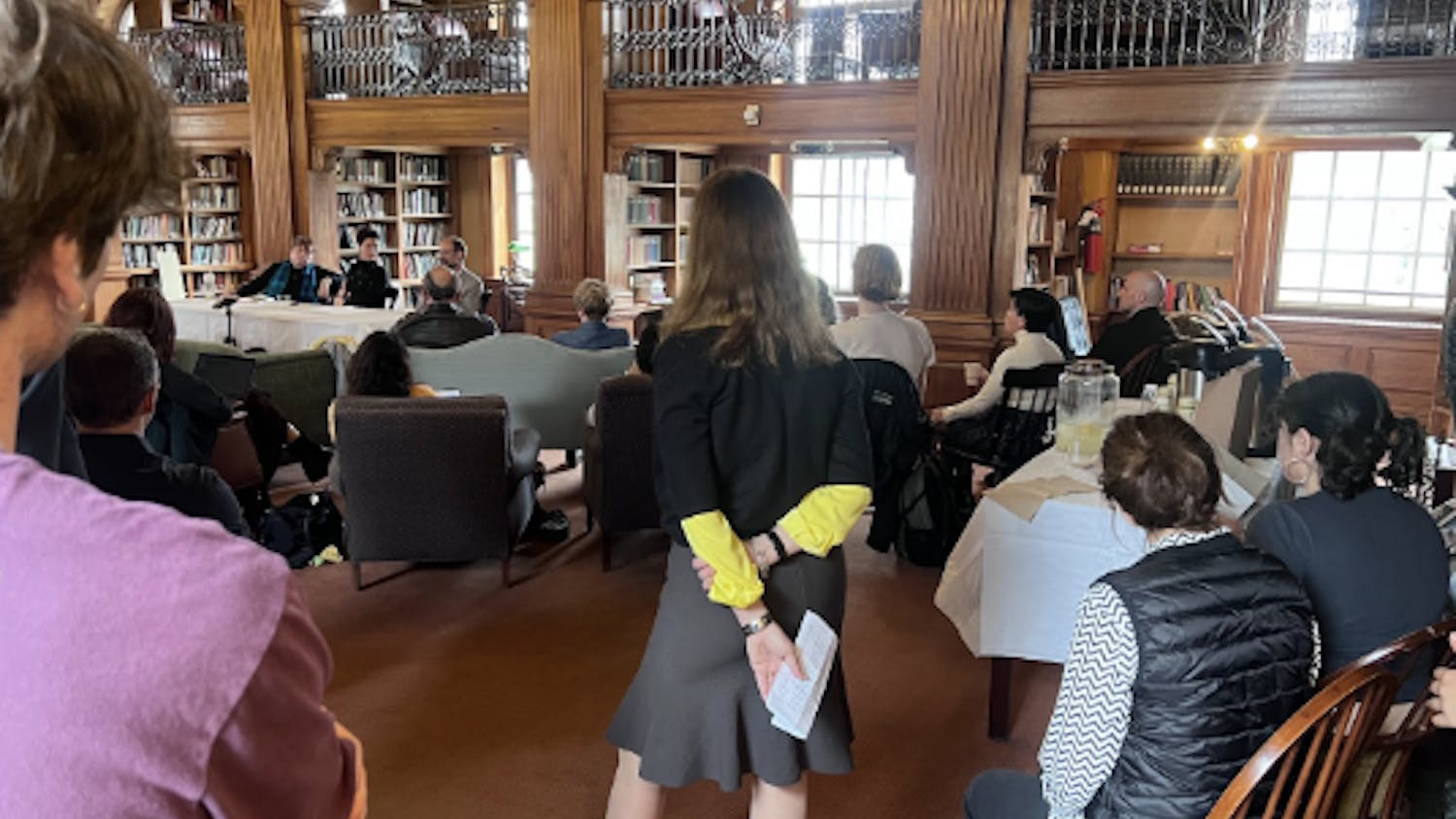What motivates someone to give a part of herself away? What motivates someone to donate a kidney to a stranger?
Documentarian Jan Krawitz explores the emotions and experiences of altruistic organ donors in her most recent documentary, “Perfect Strangers” (2013), which will be screened at the Loew Audtorium on Wednesday evening.
Currently an art and art history professor and director of the Master in Fine Arts program in documentary film and video at Stanford University, Krawitz has worked as a documentary filmmaker since the 1970s. Her first short documentary, “Styx” (1976), where the camera captures the experience of commuting, is part of the Museum of Modern Art’s permanent collection, and many of her works have been broadcast on national television.
Krawitz will attend the Hop screening and interact with some film classes on campus, where she will critique students’ work and talk about the process of acquiring and using archival footage in her films.
Alex Stockton ’15, co-founder of Stories Growing Films and a teacher’s assistant in two of film and media studies professor Jeffrey Ruoff’s classes, said he hopes to learn about how Krawitz crafts an engaging story around topics as opposed to characters, like in fiction films.
“I think documentaries kind of have a bad rap — in that, they’re these boring things that are on TV channels that no one watches or that we have to watch for school,” Stockton said. “I think that there are a lot of really great documentaries out there that are stylistically really entertaining and dealing with topics that we are all really interested in, and I think Krawitz is definitely one of the filmmakers that are making those type of documentaries.”
Krawitz said she prefers to sketch the basic framework of a documentary before collecting all of the footage.
“Even though documentary is very capricious and you never know what you’ll get, I think you know when to turn the camera on and off if underlying your topic are things you know you want to explore,” she said.
In “Perfect Strangers,” Krawitz captures the story of two women, separated by 500 miles, one needing a kidney and one wanting to give hers away. Krawitz was interested in why one person, Ellie, would be willing to give away such a priceless gift to someone that she barely knew, Kathy.
Unlike some of her previous works, the film focuses on the two principal characters instead of a plethora of donor-recipient pairs, she said.
“If it was going to work intellectually, emotionally, viscerally, we need to get invested in a single [person] and her journey,” she said. “I didn’t feel like it would really serve the film to be a mile-wide and an inch deep.”
The story takes place over about four years and traces the complications of the donation process. The tinkling, music box soundtrack and the contrasting scenes of hospitals and home interiors create the documentary’s ambiance.
Due to the unpredictable nature of documentaries, other characters do come into play. While Ellie’s story drives much of its plot, other donation stories cycle throughout, she said.
Krawitz’s documentaries span varied styles and topics. In “Little People” (1982), she explored the experiences of half a dozen persons with dwarfism. She received an Emmy Award nomination for the work and produced a follow-up film, “Big Enough” (2005), which included many of the original interviewees.
In a later work, “Mirror Mirror” (1990), Krawitz explored women’s conceptions of physical beauty using original interviews and footage from 1930s beauty pageants. In some clips, women wear masks as they talk about the concept of the “ideal” body.
“She’s ranged widely in her topics, but has always had a compassionate and empathetic voice and is a filmmaker who is able to draw her subjects out and reveal sides of themselves in delicate and generous ways,” Ruoff said.
After its screening at Dartmouth, “Perfect Strangers” will travel to Lesley University. It has previously played at a dozen film festivals including the 2013 Santa Fe Independent Film Festival, where it won an honorable mention award.
Many non-for-profit groups that aim to increase awareness about organ donation, such as Donate Life America, have hosted screenings of the film as well.



